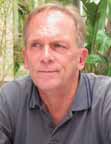SEJournal Online is the digital news magazine of the Society of Environmental Journalists. Learn more about SEJournal Online, including submission, subscription and advertising information.

E-Reporting Biz
By BUD WARD
Climate change/global warming issues may well turn out to be “the story of the century” as many science and environmental journalists have said. But that doesn’t necessarily make it the story of the day, week, month or year. One need only recall the“Deepwater Horizon” disaster in the Gulf of Mexico or the sweeping coverage given the economic collapse (or, one suspects, of the coming presidential election campaign).
So, for environmental reporters increasingly having to juggle multiple beats and assignments from editors or finicky demands of an ever-changing freelance career, how to best stay atop the climate change issues? They’re issues, after all, that are rapidly changing and evolving, notwithstanding the certainly glacial pace, no pun, of the overall impacts.
What follows are some “must see” resources and websites for journalists wanting to remain abreast of climate change …but also needing to split their time and attention among numerous issues. The universe of potential candidates surely is enormous, and no single “best of” list is likely to suit all needs. But for a start, reporters new to the climate change issue and those having to immerse themselves into it while also grappling with a range of other important environmental (and, given the nature of today’s newsrooms, also non-environmental) issues, might try these:
“Must Read” Books
 |
The Discovery of Global Warming: Revised and Expanded Edition, by Spencer R. Weart (American Institute of Physics, retired), Harvard University Press, 2008, 230 pages. ISBN-13:978-0-674-03189-0 (paper).
If you can read only one book on climate change, this should be it. Scientifically rigorous and authoritative, but very accessible and understandable.
The Rough Guide to Climate Change: The Symptoms, The Science, The Solutions, by Robert Henson (University Consortium for Atmospheric Research), Rough Guides, Ltd./Penguin Books, Ltd., 2009. 352 pages. ISBN 10: 1-84353-711-7 (paper).
But you really shouldn’t stop at one book … and Henson’s Rough Guide should definitely be the second one you read. From “the basics” of a primer, greenhouse effect, and “Who’s responsible?”... to symptoms and impacts ranging from high heat; floods and droughts; severe storms; ocean, ecosystem, and agricultural impacts; to the underlying science; and mitigation/adaptation strategies. Rock-solid scientifically.
Americans and Climate Change: Closing the Gap Between Science and Action, by Daniel R. Abassi, Yale School of Forestry & Environmental Studies Publication Series, 2006, 210 pages. ISBN-0-0707882-4-X (paper).
Based on a high-powered 2005 Aspen, Colorado, conference spearheaded by then-Yale Forestry Dean Gus Speth. Just a tad dated now, but still provides timeless insights into what drives America and Americans on climate change. A bit more emphasis on policy than on underlying science, but effectively links the two.
“Should Read” Books (“Wish I Could Find Time to Read Books …”)
Why We Disagree about Climate Change, by Mike Hulme, Cambridge University Press, 2009, 432 pages. ISBN-978-0521727327 (paper).
A respected British scientist and academic takes a swing at better understanding “both sides” of the climate science debates … and hits a homer, or at least a triple. His points are universal and global in relevance, not simply “British.”
Ten Technologies to Save the Planet: Energy Options for a Low-Carbon Future, by Chris Goodall, Greystone Books, 2008 and 2010, 320 pages. ISBN-978-1-55365-525-1 (paper).
Must-Bookmark Websites
|
|
(There are, of course, infinitely more important and worthwhile climate change websites. Virtually all the sites — good, bad, and ugly — are accessible through links or citations from one or more of the sites included below.)
http://www.ipcc.ch/
The official site for what the international climate science community considers “the gold standard” for climate science. The Intergovernmental Panel on Climate Change, IPCC, is an operation of the United Nations and the World Meteorological Organization.
http://skepticalscience.com
Queenslander John Cook’s innovative and highly readable three-plus year old Web site, now available in 19 languages and with monthly unique visitors approaching a half-million. Rebuts common “myths” voiced by climate “contrarians,” and does so in Advanced, Intermediate, and Basic formats to broaden appeal and understanding. A popular I-Phone and Android app. It’s increasingly getting rave reviews and being pointed to during scientific society meetings dealing with climate change issues.
http://realclimate.org
“Climate science from climate scientists,” but only from those in general agreement with the so-called “consensus” [Intergovernmental Panel on Climate Change, National Academy of Sciences, etc.] perspectives that Earth is warming and that humans play a substantial role in that warming. Intended as a “quick response … commentary site” for journalists and broad public, but can often be a bit on the more technical side.
http://dailyclimate.org
Launched in 2007 to be “the source of record on climate change news,” aggregating and linking through daily (7 X a week) summaries of “best news on climate change from round the globe.” Who published what on climate change — Top Stories, Solutions, Causes, Consequences, and Politics — over the previous 24-hour period. Any reporter seriously following these issues gets this free e-mail resource, with its searchable data base. Published by a Charlottesville, Va., nonprofit organization headed by John Peterson Myers, a co-author with scientist Theo Colburn and former Boston Globe reporter Dianne Dumanoski of Our Stolen Future, dealing with endocrine disrupters.
http://wattsupwiththat.com/
When it comes to web sites managed by climate “skeptics,” none gets more traffic than that managed and run by former TV meteorologist Anthony Watts … “WUWT.” The vast majority of respected climate scientists are highly dubious about its scientific credentials, but it’s the one “must see” site for those wanting to know the pulse of the climate skeptics community. (Critics like to describe Watts’ site as “snarky.”)
http://climateprogress.com/
Blogger and former Carter Administration Energy Department official Joe Romm’s site is about as far — scientifically, politically, and philosophically — from Anthony Watt’s WUWT as could be. Romm’s site is managed by the Center for American Progress, a liberal policy think tank headed by former Clinton Administration White House Chief of Staff John Podesta. Romm is known for his “take no prisoners” approach and rhetoric ... and for his prolific blogging on climate and energy issues. (Again…critics find this site, like WUWT, “snarky.” Chances are good that both sites take those barbs as compliments coming, as they often do, from their adversaries.)
Focusing on American Attitudes on Climate Change
Anthony Leiserowitz at Yale University and Edward Maibach at George Mason University have done research commonly referred to as “the Six Americas study.” Try googling that term, and you’ll be led to the most recent of those studies, illustrating the range of public opinions and attitudes — from “alarmed” to “dismissive” — characterizing Americans’ views on the subject and factors indicating how and why the public falls into those categories.
Sites Focusing on Journalism and Climate Change
No conversation of useful climate change web sites — and certainly no conversation addressing the interests of journalists —would be complete without mention of former New York Times science reporter Andy Revkin’s dot earth site.
A long-time SEJ member, Revkin in early 2010 accepted a buy-out from the Times to move to Pace University, but he continues to contribute frequently to the Dot-Earth site he had launched, now more in a column and opinion format rather than as a news site. Like other SEJ members and their own sites — Tom Yulsman and his http://cejournal.net and Curtis Brainard’s work at http://www.cjr.org/the_observatory/ come quickly to mind — Revkin’s site and long-time science reporter Charlie Petit’s work at http://ksjtracker.mit.edu frequently provide practical insights into reporting on climate change and also on related environmental and science issues.
Finally, how do I say it? I hope SEJ members will often visit the site I edit and write for: The Yale Forum on Climate Change & The Media. Saying it poses an obvious conflict of interest … omitting it makes it a conspicuous omission.
Bud Ward is a founding member of SEJ and the editor of The Yale Forum on Climate Change & The Media.
* From the quarterly newsletter SEJournal, Spring 2011 issue.













